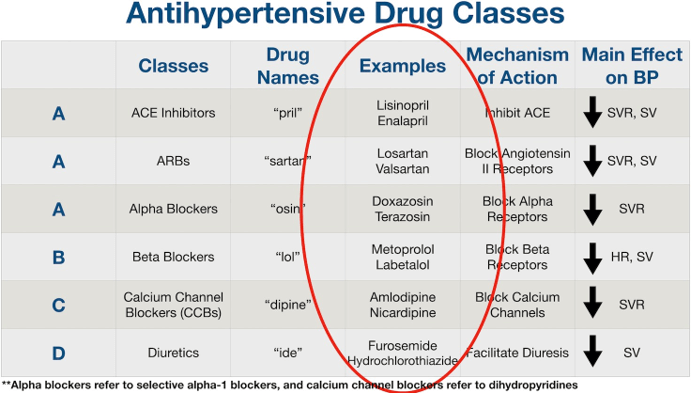The practical nurse (PN) reviews the history of an older adult who is newly admitted to a long term care facility.
Which factor in the resident's history should the PN consider the most likely to increase the client's risk for falls?
Ankle ulcer that is healing slowly.
History of alcohol abuse and cigarete smoking.
Recent weight gain of twenty pounds.
Newly prescribed antihypertensive medication.
The Correct Answer is D
This is the factor that the PN should consider the most likely to increase the client's risk for falls because it can cause orthostatic hypotension, dizziness, or fainting, especially when the client changes position or gets up from bed or a chair. The PN should monitor the client's blood pressure and pulse before and after administering the medication and assist the client with ambulation and transfers.

Nursing Test Bank
Naxlex Comprehensive Predictor Exams
Related Questions
Correct Answer is B
Explanation
The correct answer is B. Extend the leg and flex the foot.
Choice A rationale:
Massaging the calf and foot is not recommended as it could potentially dislodge a blood clot if one is present, which can be dangerous.
Choice B rationale:
Extending the leg and flexing the foot helps to relieve the cramp by stretching the muscles involved. This is a safe and effective method to alleviate muscle cramps.
Choice C rationale:
Checking the pedal pulse in the affected leg is important for assessing circulation but does not directly address the immediate discomfort of the cramp.
Choice D rationale:
Elevating the leg above the heart is generally used to reduce swelling and improve circulation but is not specifically effective for relieving muscle cramps.
: 3
Correct Answer is B
Explanation
The correct answer isChoice B.
Choice B rationale:
The practical nurse (PN) should instruct the unlicensed assistive personnel (UAP) to keep the client's skin clean and dry. Proper skin care is essential for a client with urinary and fecal incontinence to prevent the development of pressure ulcers. Keeping the skin clean and dry helps reduce moisture-related skin breakdown.
Choice A rationale:
Encouraging the client to rest quietly in bed is not directly related to preventing pressure ulcers. While adequate rest is essential for overall health, it does not specifically address the risk of pressure ulcers in an incontinent client.
Choice C rationale:
Obtaining supplies for contact precautions is unrelated to the client's risk of developing a sacral pressure ulcer. Contact precautions are used to prevent the spread of infectious diseases and do not address skin integrity.
Choice D rationale:
Documenting any changes in skin integrity is important, but it is the responsibility of the healthcare team, including the PN. However, this response does not provide proactive measures to prevent the pressure ulcer from occurring in the first place, which is the primary concern in this situation.
Whether you are a student looking to ace your exams or a practicing nurse seeking to enhance your expertise , our nursing education contents will empower you with the confidence and competence to make a difference in the lives of patients and become a respected leader in the healthcare field.
Visit Naxlex, invest in your future and unlock endless possibilities with our unparalleled nursing education contents today
Report Wrong Answer on the Current Question
Do you disagree with the answer? If yes, what is your expected answer? Explain.
Kindly be descriptive with the issue you are facing.
